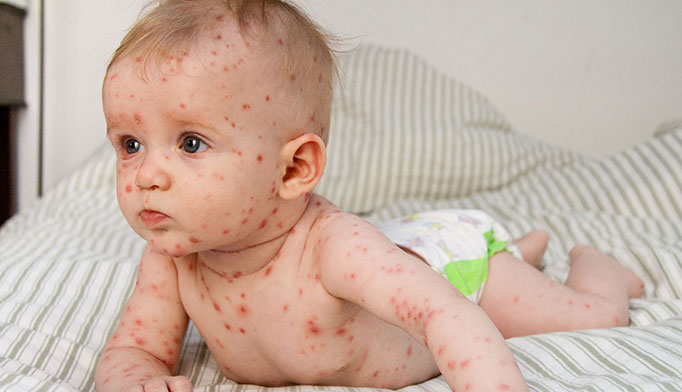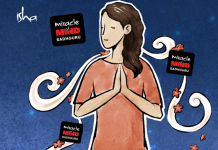Chickenpox is a very common childhood disease. Sometimes, some people get it even when they are past childhood. This week, we take a look at this disease and find out what causes it and how it is cured.
Chickenpox (CP) has been regarded a routine childhood disease that every child gets. It has started posing more problems nowadays because the disease affects not only the young, it attacks adolescents and adults, too. And for adults, it poses more complications and pain.
This upward shift in age at which CP strikes is a worldwide phenomenon. In the US, hospitalization figures for complicated CP in adults and adolescents are now four to five times higher compared to those two-three decades back. A similar trend is being noticed in the UK. In India, and the other South and South-East Asian countries, cases above the age of 15 are on the rise. With the phenomenon continuing, one is likely to see more severe and complicated cases of CP.
CP is viral disease caused by the Varicella-Zoricella-Zoster virus. It’s the same virus that causes Herpes Zostar. It is one of the most contagious diseases with an 80-90 percent likelihood of close family members being infected.
Unlike measles, symptoms of CP before the rashes appear may pass of unnoticed. usually, headaches and fever occur only for a day or two prior to the appearance of rashes.
Initially, rashes are reddish itching patches all over the trunk, face and scalp. Over the next 48-72 hours, they involve into tiny fluid-filled, teardrop like vesicles. new crops of rashes keep appearing for five-six days. The sight of rashes in various stage is a classical example of the illness and helps in its diagnosis. Lesions are usually not seen on palms and soles.
Usually children have fewer than 250-300 lesions, the number in more severe cases may go up to 1,500, making it uncomfortable even to sit or lie down. Such severe cases are seen only at an older age or in immuno-compromised individuals. The appearance of lesions in the oral cavity, eyelids or conjuctiva adds more to the misery.
It takes about two weeks to completely recover; the severe cases may take more time. Complications like a bacterial super-infection or pneumonia can be expected in severe cases. Other complications like encephalitis (swelling in the brain), cerebral ataxia and hepatitis, fortunately, are rare.
Vaccination is the best way to prevent chickenpox. The chickenpox vaccine is very effective at preventing the disease (between 70% – 90% of people who get vaccinated will be completely immune to chickenpox). If a vaccinated person does get chickenpox, the symptoms will be very mild and only last for a few days.






